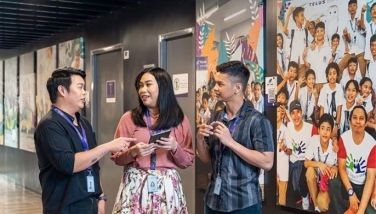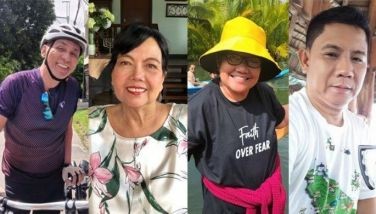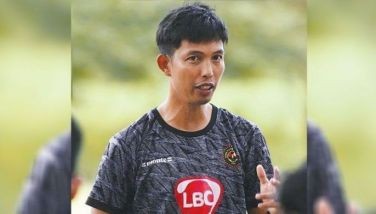‘Moses’ was a woman
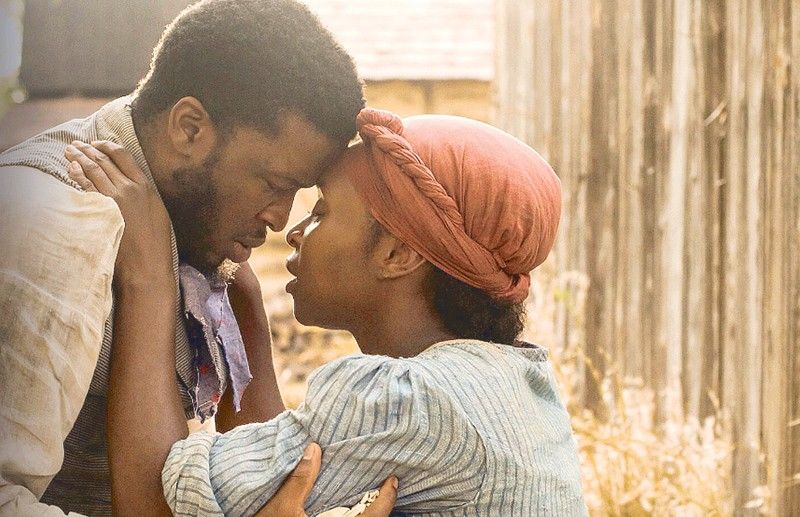
Today, Women’s Day, I salute all the women in my family for their strength and their gentleness: my mother Sonia, my late mother-in-law Lutgarda, my grandmothers Mary Mayor and Jovita Reyes, my sisters Mae, Geraldine and Valerie, and many more. Strength isn’t just the ability not to bend in crisis. It is also being gentle enough to bend with it, bounce back and be the bough people run to for refuge, and consequently, strength.
Last week I watched the movie Harriet on Netflix, based on the life of American abolitionist and political activist Harriet Tubman. Born into slavery in March 1822 in Maryland, Tubman escaped and subsequently made some 13 missions to rescue about 70 enslaved African-Americans, including her immediate family, friends and strangers using the network of antislavery activists and safe houses known as the “Underground Railroad.”
She had led so many slaves to freedom she was called “Moses” by both the angry slave owners, who put up a bounty for her head, and the slaves she led to freedom, risking her life each time she led them to liberty. What is amazing is that she returned each time to the epicenter of slavery to rescue more, again and again.
And she was reportedly less than 5 feet tall.
When she herself escaped she was quoted to have said, “I had reasoned this out in my mind; there was one of two things I had a right to, liberty, or death; if I could not have one, I would have the other.”
Having tasted liberty, she wanted to share its nectar with her family, then her neighbors, till word had spread that there was this woman leading slaves, most of them with deep scars from repeated lashes, to the “Promised Land.”
According to historical sources, in 1849, Tubman escaped to Philadelphia, only to return to Maryland to rescue her family soon after. Traveling by night and in extreme secrecy, Tubman “never lost a passenger.”
Because of her efforts, she was nicknamed “Moses,” alluding to the prophet in the Book of Exodus who led the Hebrews to freedom from Egypt.
“My people are free!” is what she would exclaim after daring rescues.
Historical accounts say Harriet usually worked during winter months, to minimize the likelihood that the group would be seen. One admirer of Tubman said: “She always came in the winter, when the nights are long and dark, and people who have homes stay in them.”
Harriet was portrayed with gut-wrenching authenticity by Cynthia Erivo, who was nominated for an Oscar for her role as Harriet. Each escape makes you sit at the edge of your seat, for even if this is biographical, you never are certain which daring escape would be the last. So each “parting of the sea,” so to speak, of this female “Moses,” was nail-biting.
On a positive note, the movie Harriet, while showing the debasement of men who would treat human beings like beasts with no rights, also shows the kindness of many. Each formed a chain that helped Harriet and the slaves hold on to something till they reached safe harbors.
We Filipinos are at a crossroads in our own history. We are not in bondage, though many of us are still enslaved by poverty. We need a “Moses” to set us free. Someone brave, someone who shows up even in the coldest winter nights to rescue her people.
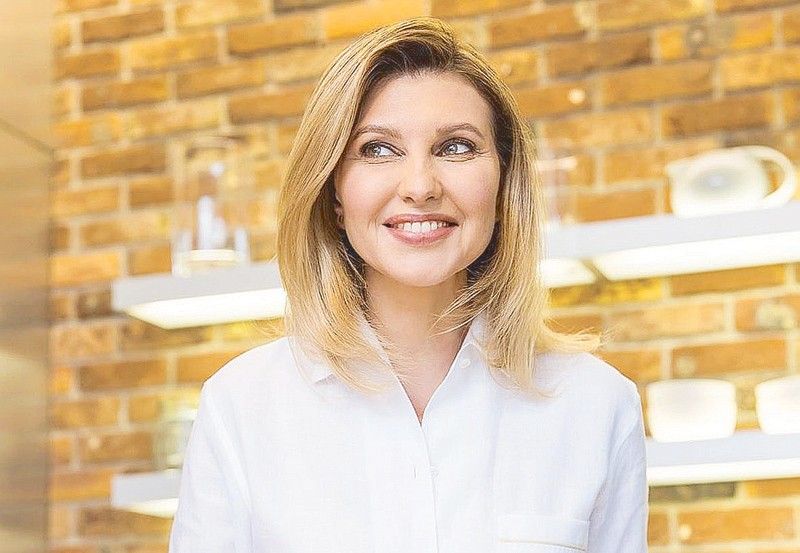
Olena
Another woman whom I admire for her steadfastness is Ukrainian First Lady Olena Zelenska. If “Moses” always showed up despite the dangers, Olena reportedly stays put and in doing so, increases the morale of those defending their beloved Ukraine. Her husband has been offered a “ride” out of Kyiv and refused it. It seems Olena has, too.
In a recent Instagram post, she paid tribute to the women of Ukraine saying, “Our resistance has a female face.”
“Before the war (how scary and still unusual to pronounce it), I once wrote that there are two million more women in Ukraine than men. Statistics are just like that. And now it takes on a whole new meaning,” Zelenska said.
“Because this means our current resistance has a particularly female face. My admiration and bow to you, incredible compatriots!
“To those who fight…to those who heal, save, feed. And to those who continue to do their usual job — in pharmacies, shops, on transport, in utilities, so that life lasts and wins…
“To those who take children to shelters without panic and entertain them with games and cartoons to save children’s consciousness from war. To those who give birth in a bomb storage. Today is the first day of spring. Remember how we all celebrated each other on this day before the war. So the sun is visible through the smoke of shelling.
“Everything will be spring. Everything will be victory, everything will be Ukraine.”
Zelenska, a former scriptwriter married to Ukrainian President Volodymyr Zelenskyy, posted a series of images of Ukrainian women on Instagram, whether on the frontlines or in the community.
She also posted on Instagram last week. “My children are looking at me. I will be next to them. And next to my husband. And with you.”
With women who have gone the extra mile, literally (like Harriet was said to have walked 100 miles to freedom one way), and figuratively, the world has become a more equitable place for generations.
“Her” stories have shaped history, indeed.
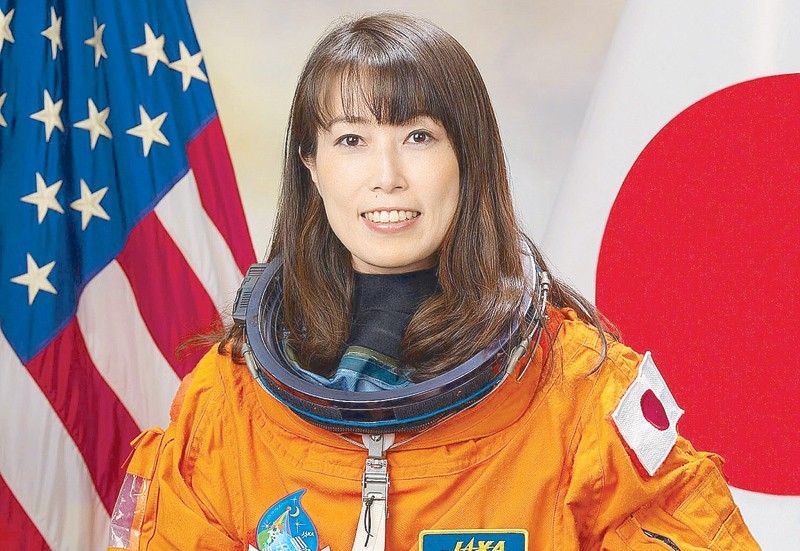
The sky’s not the limit
In the ever-advancing industry of aeronautics, women compose a quarter of the workforce. Established in 1938 in honor of famed pilot and Zontian, Amelia Earhart, the $10,000 Amelia Earhart Fellowship is awarded annually to up to 35 women pursuing doctoral degrees in aerospace engineering and space sciences. The fellowship may be used at any university or college offering accredited post-graduate courses and degrees in these fields.
Since the program’s creation in 1938, Zonta has awarded 1,674 Amelia Earhart Fellowships, totaling more than $11 million, to 1,245 women from 75 countries.
In celebration of Amelia Earhart Month and as the highlight of Zonta Club of Makati and Environs’ 50th anniversary, the club welcomed the New Year with an inspiring talk entitled “Diversity in Space Exploration” by engineer Naoko Yamazaki, the second female Japanese astronaut to travel in space onboard Space Shuttle Discovery in 2010.
Yamazaki, an Amelia Earhart Fellow in 1994-1995, discussed the benefits of the fellowship program that opened opportunities for her as an exchange student at the University of Maryland. She further discussed how she was inspired to pursue courses in Engineering and Robotics. Networking with other fellows, meeting role models and visits to the Smithsonian Museum motivated her to pursue her childhood dream of becoming an astronaut.
The talk was indeed truly inspiring and proved that women with great ambitions should work harder and stay focused and undeterred despite challenges in order to achieve their goals and soar to greater heights. It is the organization’s belief that the Amelia Earhart Fellowship will go a long way in advancing the status of women in the aeronautics industry. Indeed, the sky is not the limit!
(You may e-mail me at joanneraeramirez @yahoo.com. Follow me on Instagram @joanneraeramirez.)
- Latest









